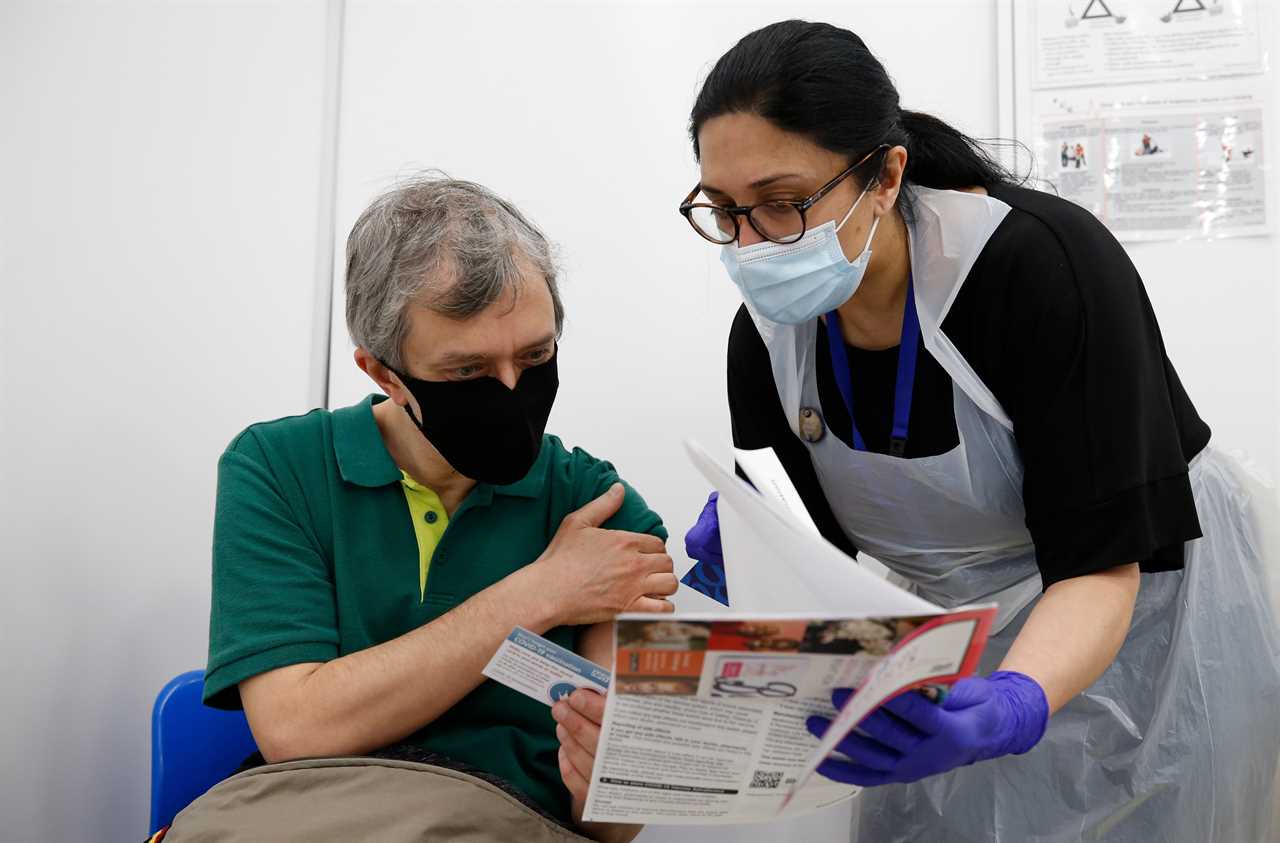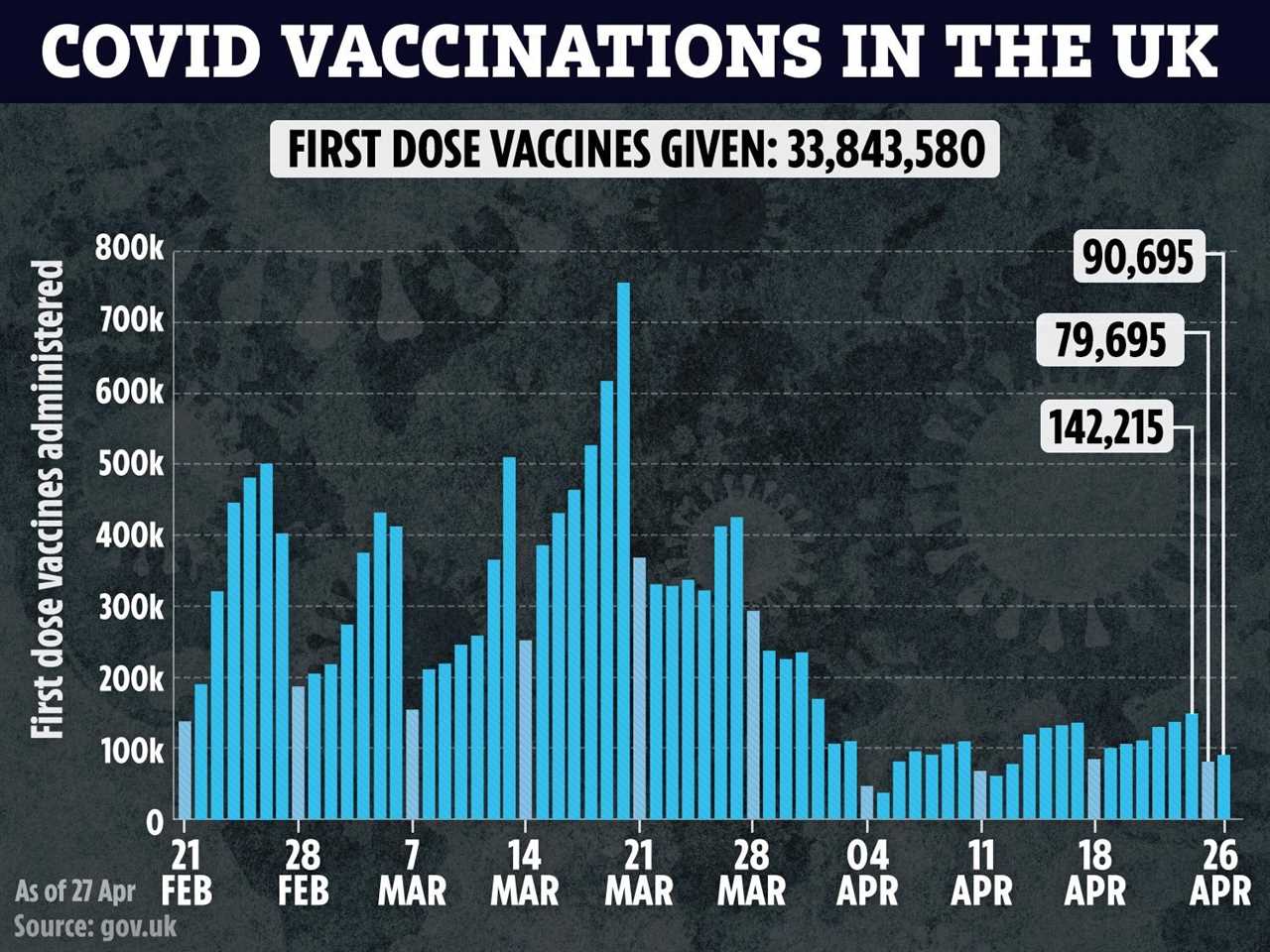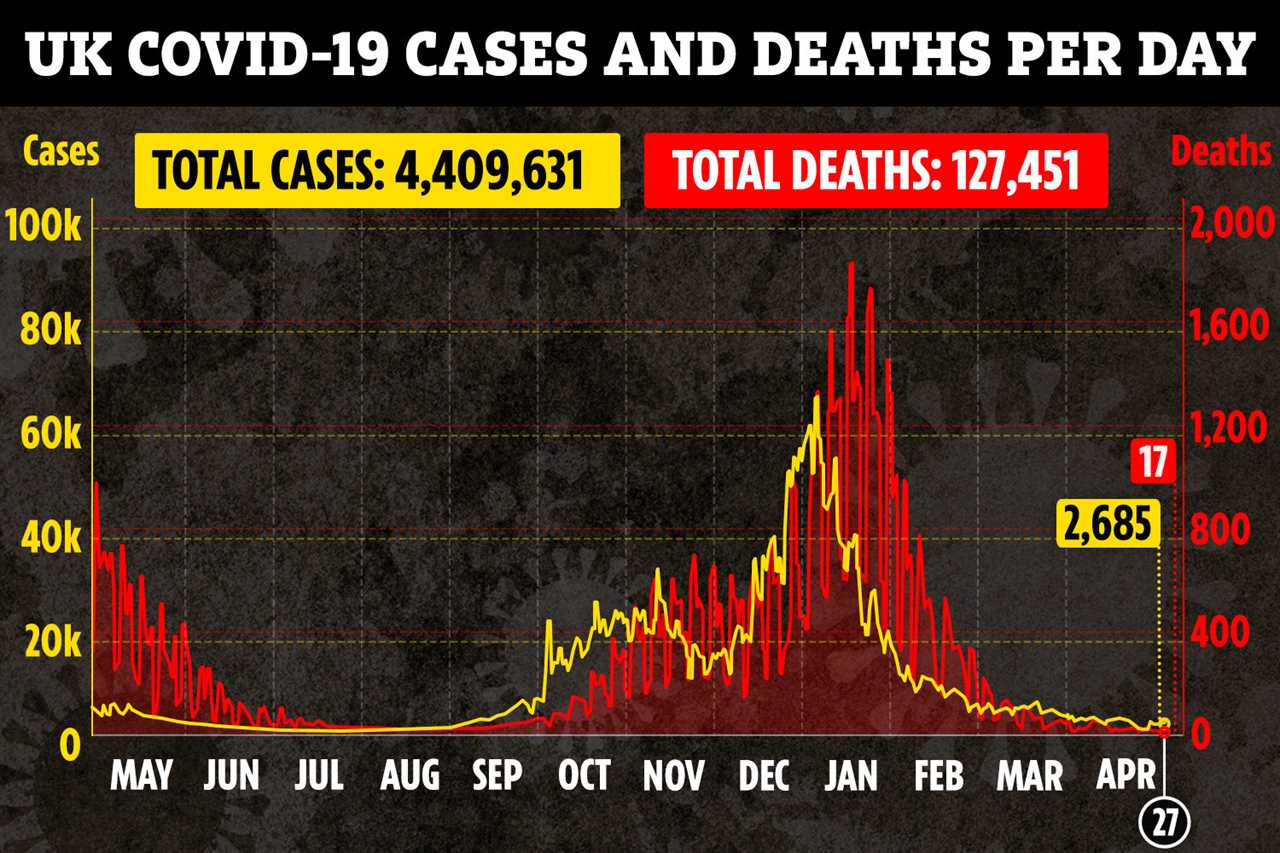MILD Covid vaccine side-effects that make you feel unwell only affect one in four people, a study has found.
Even when someone suffers from temporary symptoms such as fatigue and nausea it is a sign the jab is doing its job, experts say.

Read our coronavirus live blog for the latest updates

But it is not an indication of how much protection a person builds against the virus.
Headache was the most common side effect, as well as fatigue and tenderness at the injection site, according to the latest research published in the Lancet Infectious Diseases.
Most effects of either a Pfizer or AstraZeneca/Oxford vaccine peak within 24 hours after vaccination, usually lasting one to two days.
The paper reported a comparison of both jabs that are being used in the UK’s vaccination programme.
The analysis by researchers from King’s College London used data from the Zoe Covid Symptom Study app, used by mobile users across the UK.
More than 627,000 people who had been given one of the two vaccines contributed.
It comes as:
- A quarter of adults have now had two doses of a Covid jab
- Millions more are eligible for Covid jabs after the age limit was lowered to 42
- Brits will be able to buy a pint without a vaccine passport after the PM shelved plans
- UK Covid cases have plunged 30 per cent in a week with 2,064 infections and six deaths recorded in last 24 hours
They reported symptoms in the eight days after getting either one or two doses.
Overall the study found 25.4 per cent experienced systemic effects – meaning side-effects excluding the injection site such as headache, fatigue, chills and nausea.
Some 66.2 per cent reported local side-effects – where the injection took place in the arm – included pain, swelling, tenderness and swollen armpit glands.
Participants who had previously had coronavirus were more likely to have side effects after a jab by two to three times. And younger people and women are more susceptible.
But the study found fewer side-effects in the general population with both the Pfizer and AstraZeneca vaccines than reported in trials.
Tim Spector, professor of genetic epidemiology at King’s College London and lead scientist on the app, said: “The data should reassure many people that, in the real world, after-effects of the vaccine are usually mild and short-lived, especially in the over-50s, who are most at risk of the infection.”
Scientists say side effects to a vaccine are normal because the body is reacting to what it believes is a real coronavirus infection.
The first part of an immune response is called innate immunity, which launches an attack against the virus by causing inflammation.
The result is fever and pain, according to Veenu Manoharan, a lecturer of immunology at Cardiff Metropolitan University.
He wrote for the Conversation: “It’s the innate immune response that causes the common side-effects that people experience a day or two after they’ve had the jab.”
SLASHING CASES
Prof Manoharan also said older people may be having fewer side effects because immune activity declines as we age – but this did not mean they had lower antibody levels against the disease.
And males may avoid side effects easier due to testosterone, which “tends to dampen inflammation and hence the side-effects associated with it”.
Experts have previously explained those who have already suffered coronavirus infection are already primed to fight it again, which is why they have side effects after a first Covid jab dose.
One in four adults in the UK have had two coronavirus vaccines, meaning they have the optimal level of protection.


The study also reports a decrease of infection rates in people who had been vaccinated compared to those who haven’t.
The drop in infection at least 21 days after the first dose for Pfizer is 69 per cent and 60 per cent for AstraZeneca, which chimes with previous studies.
The findings are further proof that the vaccines not only prevent severe Covid disease, but transmission of the virus between people.
Meanwhile, a separate study has found that the public’s preference for the AstraZeneca vaccine has declined since last month after blood clot links.
Despite this, the research suggests that vaccine confidence is higher than it was towards the end of 2020, and there has been a big rise in the proportion of people who say they want to be vaccinated as soon as possible.
Medicine regulators in the UK say there is a “plausible link” between the AstraZeneca vaccine and blood clot cases.
But the risk is so miniscule that people are better off getting the jab when offered than not, considering Covid is more likely to cause a blood clot than the vaccine.
Overall, 81 per cent of people now say vaccines are safe, compared with 73 per cent who said the same towards the end of 2020.






